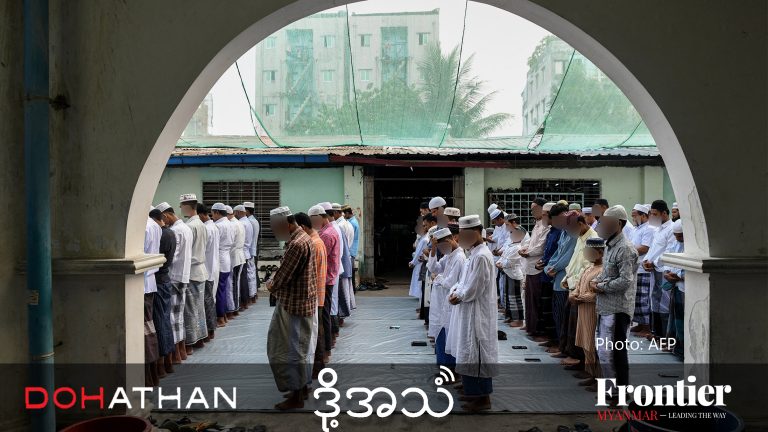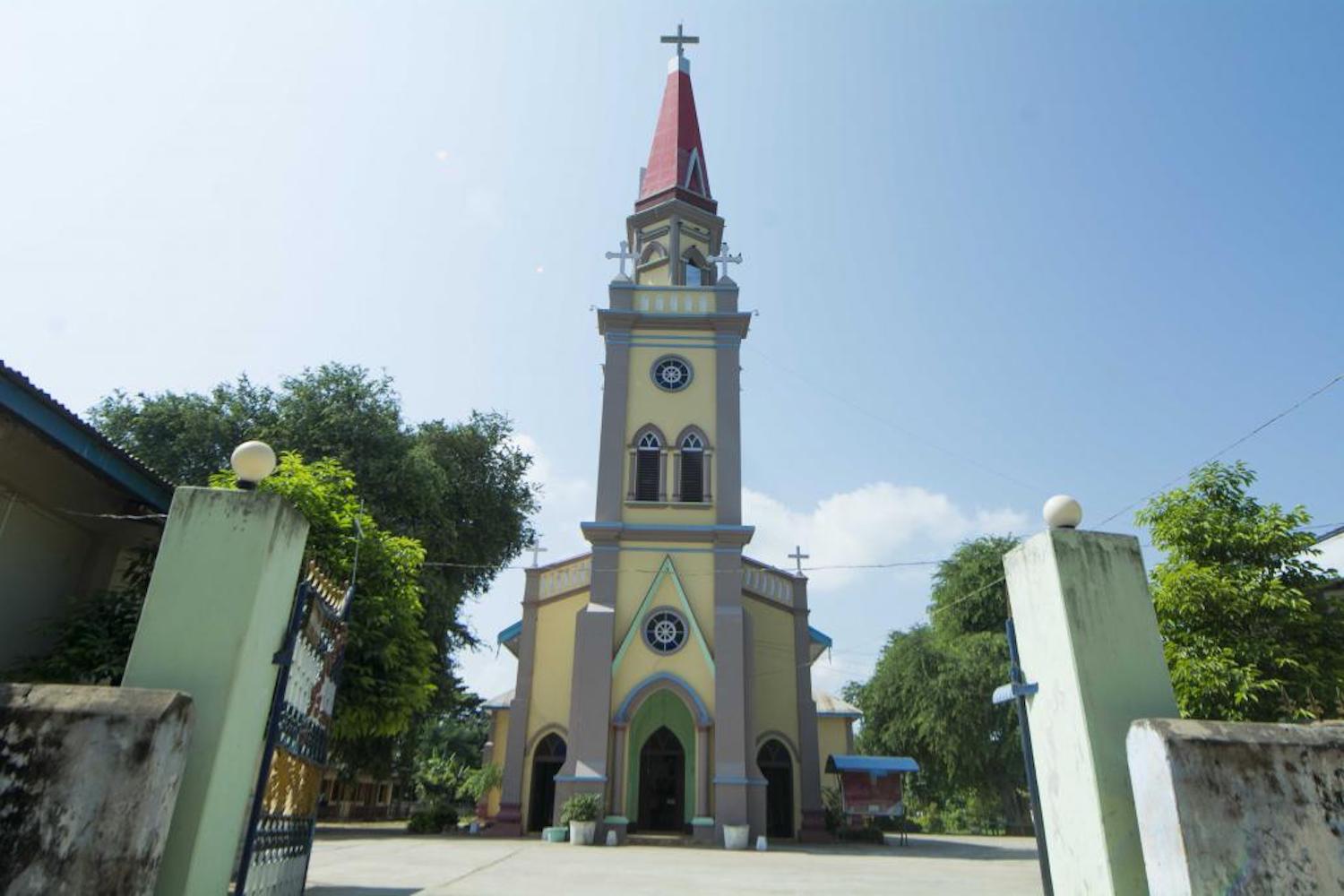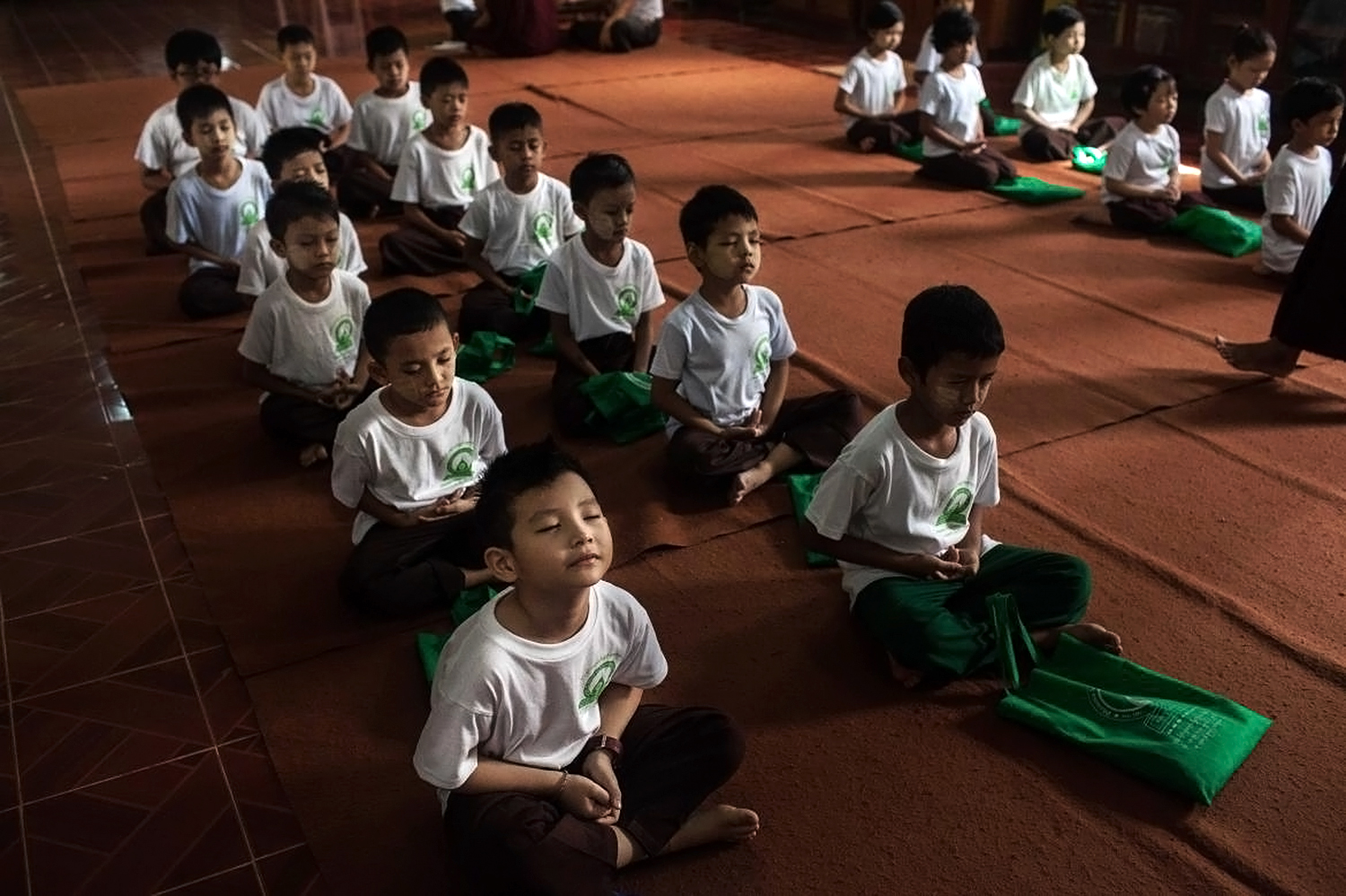Without a functional legal system to check the excesses of religious power, has Ma Ba Tha set Myanmar on a course to become a Buddhist Iran?
The achievements of Ma Ba Tha – the “Committee for the Protection of Nationality and Religion” – reached a dubious apogee last Sunday with a massive rally at Yangon’s Thuwanna Stadium, celebrating the successful passing into law of four discriminatory bills targeting women and minorities.
Ma Ba Tha’s bigoted activities and goals are well-documented, as are the hate-filled screeds of U Wirathu, the movement’s figurehead and ostensible leader. Suffice it to say that Ma Ba Tha presents a real and present danger for Myanmar’s minorities – particularly Muslims – as November’s elections approach.
The undue focus on ‘protecting’ race and religion promulgated by Ma Ba Tha has successfully served as a distraction from the pressing issues that should be dominating the airwaves in the run up to the election – poverty, land rights, education, health, and the continued role of the military in political life. I don’t need to waste column inches publicising the specifics of Ma Ba Tha’s agenda, because enough space has already been dedicated to that elsewhere.
Of course, demagoguery and xenophobia in the political sphere are issues everywhere, not just Myanmar. Questionable comments about Muslims have become de rigeur in the Republican debates in the United States in recent weeks. In Canada, where a general election will take place in two weeks’ time, Prime Minister Stephen Harper has launched a media war against what his government terms “barbaric cultural practices” – coded language for Islam and Muslims. Lynton Crosby, an Australian conservative gun-for hire and master of xenophobia as political strategy, has been a driving force in spreading anti-Muslim sentiment throughout the campaign period; regrettably, Harper’s poll numbers are rising.
Let’s not mince words: it’s unconscionable for Commonwealth heads of government to stir up resentment against minorities, just as it’s unacceptable for Ma Ba Tha to do the same in Myanmar. But the stakes of xenophobic politics in Myanmar are much higher than they are in Canada. For all its faults, Canada is governed by the rule of law. Although there are exceptions, the system largely protects the rights of minorities when they come under attack, from politicians or otherwise.
Support more independent journalism like this. Sign up to be a Frontier member.
In 2011, the Harper government made two attempts to ban Muslim women from wearing the niqab, or face covering, when taking citizenship oaths. Both times, Canadian courts struck down the ban on the grounds that it violated Canada’s Charter of Rights and Freedoms. The ease with which the four race and religion protection bills passed through Myanmar’s Parliament – with nary a dissenting peep from the Supreme Court and despite the fact that they are probably unconstitutional – shows that Myanmar has no corresponding institutions to protect minority rights.
Ashin Nyanissara, more commonly known as Sitagu Sayadaw, was the keynote speaker at last Sunday’s Ma Ba Tha rally. He claimed that the monks’ next goal was to have Buddhism declared Myanmar’s state religion. Although his speech was generally conciliatory, and made no specific affronts towards Muslims, he has employed toned-down versions of U Wirathu’s anti-Muslim venom in the past, including testimony last year to the US Commission on International Religious Freedom where he blamed Myanmar’s poor international reputation on “mass communications such as radios and televisions are controlled by the Islamic world, which has [a] sound economy.”
At the rally, he mentioned the constitution of Iran – yes, Iran – in neutral terms, noting its alleged protection for minority rights, the fact that religious leaders there supersede lay politicians, and that it enshrines a role for Islam in governance. While he did not say so outright, he insinuated heavily that it could serve as a model for Myanmar, and noted that religion played a role in other incidences of political change, including the end of Communism.
Myanmar is a pluralistic and multi-religious society. That it should not become a Buddhist Iran merits little explanation. Because this country lacks the functional institutions of a country like Canada, which have the power to kibosh the worst excesses of politicians who capitalise on xenophobia for political gain, there is little to prevent religious extremists from dominating the agenda. In a country where few believe in erecting a wall between religion and the state, secular political space is now at a premium, to the detriment of everybody that lives within Myanmar’s borders.






